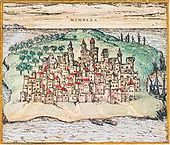Madara x
Sleep soundly
Arabs and Persians found the Swahili city states not Somali cities.
If you watch the videos carefully or even just read the quotes on the slides, you will see that the authors never actually stated that the Somali cities were founded by Arabs.





 Are you mad
Are you mad
 gtfoh with your revisionistic abu falafel shit
gtfoh with your revisionistic abu falafel shit







